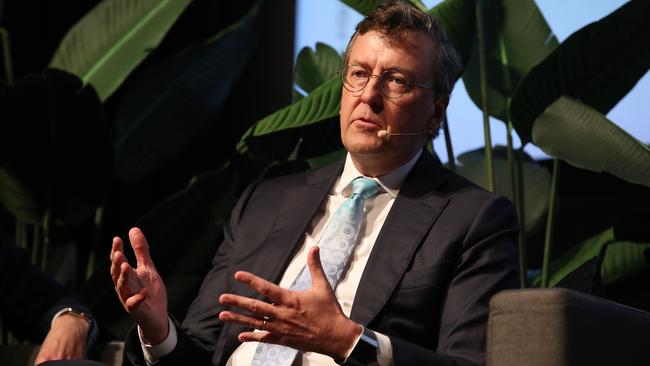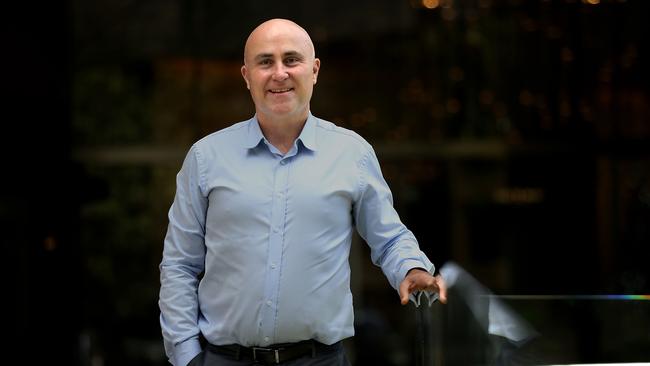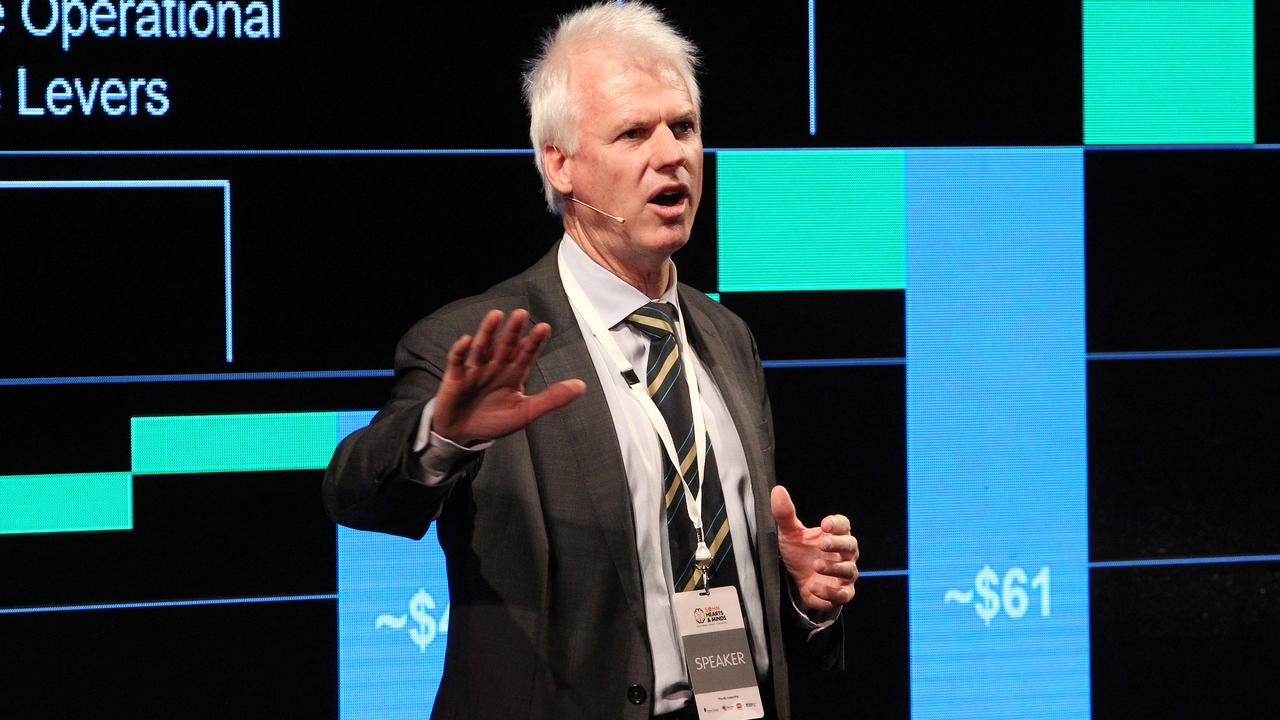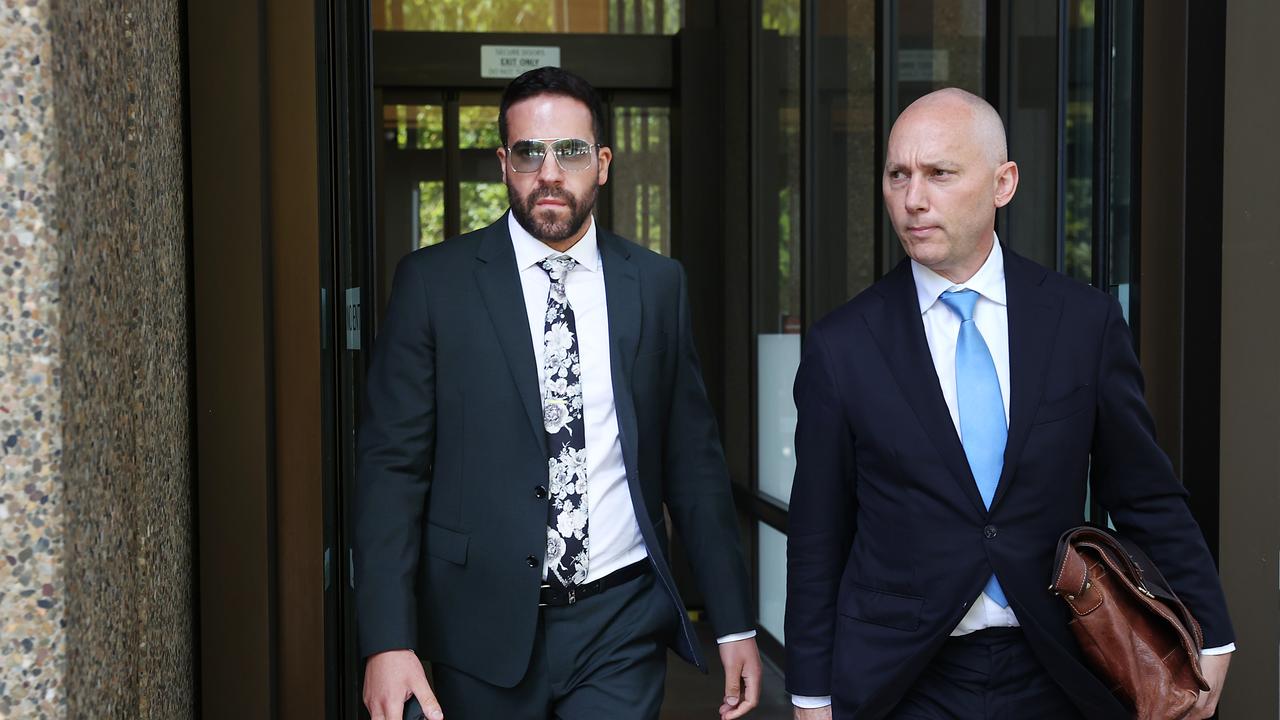Fund managers are sitting on a melting iceberg of outflows
Australia’s top fund managers are battling changes sweeping the industry amid a turbulent period for the sharemarket.

A wild fortnight during which a rescue deal was struck for Credit Suisse and Silicon Valley Bank collapsed has turned the market on its head at a time of sweeping change for Australia’s top fund managers.
Central banks which had turned off the money taps to bring inflation under control have suddenly reopened them to keep financial systems afloat.
The resulting ride in equity and bond markets is great news for volatility and algorithm traders but may create challenges for fund manager profits and lead to more industry consolidation.
“It’s like they are all sitting on a melting iceberg with no way off,” said one recently retired fund manager of his colleagues.
Some stockpickers are already swimming for land.
In the past few months, Paul Skamvougeras has left as head of equities at Perpetual, and founder of Platinum Asset Management Kerr Neilson has said he’s a willing seller if anyone wants to buy his listed company.
Magellan has been a revolving door, with John Sevior announcing last month he’s leaving Airlie Funds Management, which Magellan bought for $100m just over four years ago. Magellan’s star stockpicker and co-founder, Hamish Douglass, left suddenly last year and co-founder Chris Mackay, who stepped in to fill his boots, then walked out the door last year too.
While each has their different reasons, there is no doubt the billions of dollars in funds under management pouring out the doors of all three publicly traded companies is creating a build-up of pressure and leading to increased talks about the need to consolidate.
Perpetual has been spending up big to consolidate, having outlaid more than $3bn on acquisitions in the past three years – the biggest being Pendal along with the previously purchased Barrow Hanley and the Trillium.
Not that those moves have stopped the outflows, the decline in profit which fell 55 per cent in the first half, nor the share price slump.
Perpetual shares are down 38 per cent over 12 months, while Magellan Financial Group shares are off 36 per cent, and Platinum shares have dropped 22 per cent over the same period.
Fund managers are struggling with poor performance against passive investing and exchange traded funds, as well as moves by superannuation funds – which dominate the market – to take funds management in-house or otherwise pay historically low fees.

Australian Fund Monitors founder Chris Gosselin, who specialises in assessing the funds rather than the companies that run the funds, said the fundamentals for both remain the same.
“A company will do well on the sharemarket if its got the basics of what drives a fund manager, which is funds under management and performance,” Mr Gosselin said. “That’s the key to a funds management business.”
For most of these companies the performance just hasn’t been there. Magellan, he said, was a standout underperformer.
“The high-conviction fund is down 20 per cent over 12 months … and the seven-year performance is 6.6 per cent when the average for long-only global funds in our database is 10 per cent. So they’re seriously underperforming,” he said.
The flagship Global fund “is not much better” Mr Gosselin said.
“The 12-month performance is -12.07 per cent, two year is -2.35 per cent and three year minus -0.64 per cent. That performance is not conducive to retaining funds under management.”
That theory is borne out in the numbers, with Magellan’s funds under management more than halving in recent years to $45.4bn at last count in February and the company posting a 67 per cent drop in half-year earnings.
Platinum has also suffered a decline in FUM and share price but its chief executive and chief investment officer, Andrew Clifford, said his firm was now producing good results in a difficult market.
“Our investment returns have improved dramatically over the last year or two,” Mr Clifford said.
He said that since the end of 2021 when Covid lockdowns largely ended, Platinum’s international fund was 18 per cent ahead of the market. Over three years the fund has risen 8.1 per cent per annum against the market which is up 7 per cent.
For calendar 2022, it beat the benchmark by 16 per cent. However, that didn’t stop the company producing a 37 per cent drop in underlying profit after tax in the first half of this year on the back of increased staff costs over that period.
While Mr Clifford has been busy trying to stay ahead of the market, he’s also had to contend with co-founder and major shareholder Kerr Neilson declaring during a media interview that he should step down as CEO and was open to takeover offers.
Mr Clifford, who holds 5.6 per cent of Platinum, said that while Mr Neilson, who owns 21.5 per cent, was entitled to his opinion, his comments made some customers uneasy.

“Some clients are uncomfortable about it,” Mr Clifford said. “Significant clients have (picked up the phone) and said they are uncomfortable with that position. It is certainly not helpful.”
As to who would want to buy Platinum, the biggest name touted is the smaller hedge fund Regal Partners, which last year made an unsuccessful joint bid for Perpetual and sits on the register as the third-largest shareholder in Platinum with 5.49 per cent.
Mr Clifford would not comment on whether he thought Regal would make a takeover bid for Platinum, but expressed scepticism about the success of fund management mergers in general.
“I think there will be M&A (in Australia) this year but I’m not sure where the value-added is formed,” Mr Clifford said.
“We have to be open to the possibility that there can be a transformational deal, but again it comes back to what’s the industrial logic of that combination and how does it work?” Mr Clifford said. “It can’t be just stitching things together without some significant benefit. It’s got to be more than one plus one equals two.”
As a long-short fund manager, Regal runs a very different style of business. It has no retail clients and a highly leveraged main fund, which is believed to experience swings of plus or minus 30 per cent. It has a highly loyal client base, with returns of 20 per cent compound rates leveraged, since the firm started up.
Culture might also be a problem between the two firms, or in fact between Regal and any of the abovementioned listed fund managers.
Rumours often fly as to whether Regal might make a bid for much larger rival Magellan, or possibly Magellan for Regal. Both firms have been outspoken about their desire to make acquisitions. And last year Regal did make a joint bid for Perpetual.

Views on Regal founder and chief investment officer Phil King are definitely mixed but most of his peers seem to think he might be one of the smarter guys in the room. However, his firm gives off a vibe reminiscent of the popular “Billions” television series, which would certainly have clashed with the bureaucratic reputation of a firm like Perpetual.
Regal’s offices were even raided by federal police in 2019 and the securities watchdog was also on site. However, no charges were laid.
Regal chief executive Brendan O’Connor would not comment on acquisition plans but said the company was long Platinum because it thought it was a good buy.
“Phil thinks the current price is undervalued relative to its intrinsic value but perhaps that’s on the basis that things need to change and if things don’t change it’s likely the investment thesis might change as well,” Mr O’Connor said.
He pointed to Platinum’s substantial cash reserves and raised the prospect of a share buyback as one option to realise value.
As to what he thinks of Perpetual now that it has proceeded with its deal to buy rival Pendal, instead of the $33-per-share bid Regal made with private equity giant EQT Baring, Mr O’Connor points to the Perpetual share price of $20.85 at Friday’s close.
“Clearly the market is saying that they don’t like the deal,” Mr O’Connor said. “We were part of a consortium bidding $33 per share and it’s obviously a long way south of that.”
As to what’s next for Perpetual, he says it’s time for its CEO Rob Adams to show the deal was worth doing.
“That’s for Rob and the board to work through and integrate the businesses and extract value and deliver for their clients,” he said.
“Asset managers are inherently people businesses. When people talk about one company buying another company it is really superficial analysis because it goes so far away from what the raison d’etre of an asset manager is, which is firstly delivering good performance for your clients.”
Whether Perpetual can manage that with its Pendal acquisition remains to be seen. MST Financial Services analyst Lafitani Sotiriou pointed out at the half-year results that from the 2020 Barrow Hanley and Trillium takeovers, there was “no real return from the two acquisitions you made in the last six months.”
He also questioned why the company paid a premium for its rival at all.
Mr Adams admitted that control was the main reason, with a premium necessary to ensure Perpetual was in charge.
Still, conditions are tough. The latest global survey of fund managers by Bank of America showed “investor sentiment close to levels of pessimism seen at lows of past 20 years,” BofA’s Michael Hartnett wrote.
The report compiled while investors were watching the fall of Silicon Valley Bank – but before Swiss authorities made UBS step in and rescue Credit Suisse – showed the market fears a “systemic credit event” even more than they do ongoing inflation.
Moody’s lowered its outlook in December for the global asset management industry from stable to negative in response to economic conditions, which have only worsened since that time.
Just what the fund managers will do to try to keep scalable-sized funds management is uncertain, but one fund manager pointed to the recent high profile departures of stock pickers and said it was important to make sure any moves had investment teams onside.
“Even a bit of turnover at the top of the investment team and you are going to vaporise what you’ve just bought,” said the fund manager, who would not be named.
“You can’t have faith in your own business if you need to do an acquisition like that,” said another.



